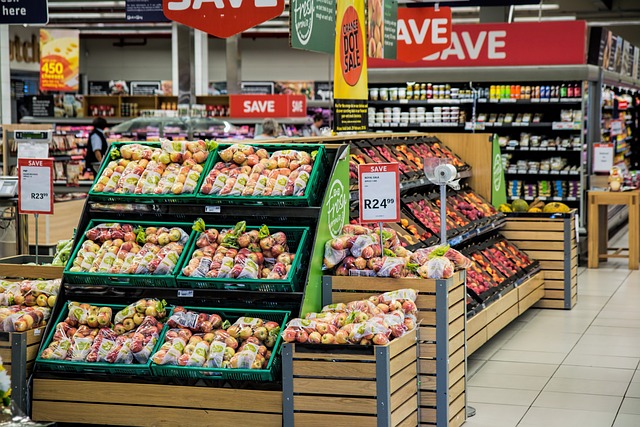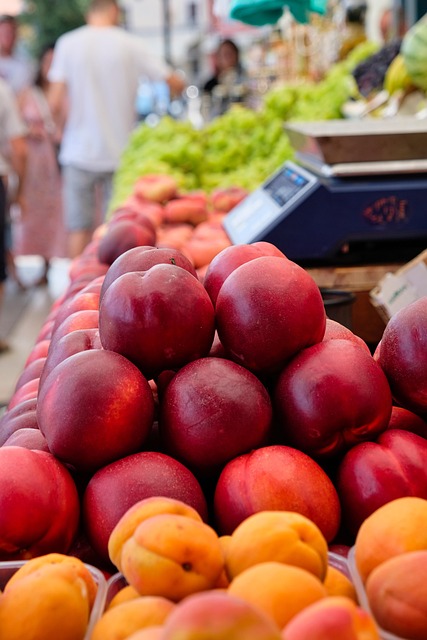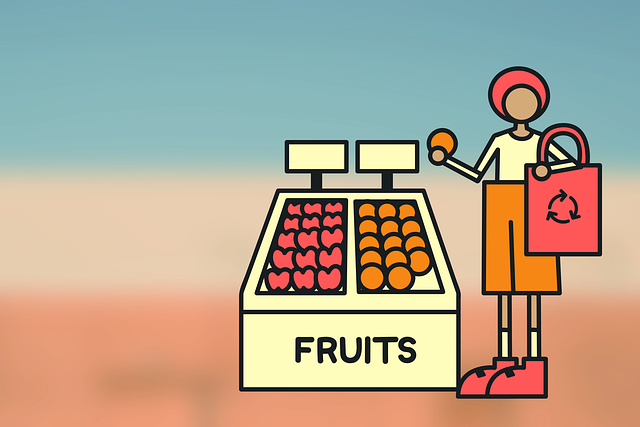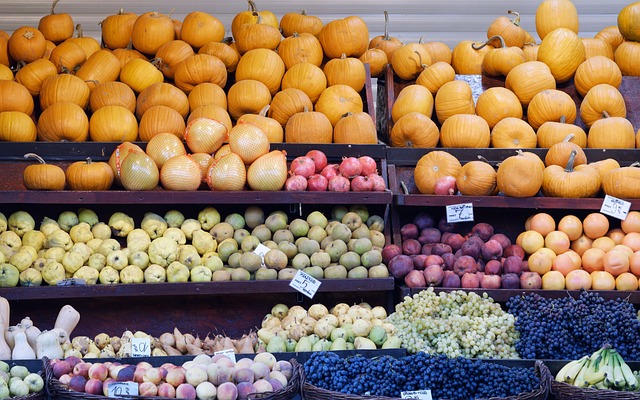Karachi's grocery market, fueled by its status as Pakistan's economic hub, is dynamic yet volatile, influenced by inflation, currency shifts, and consumer demands. Local retailers must adapt by offering diverse products for all budgets to survive market fluctuations, reflecting the city's economic health. The city's local markets are a culinary gem, but economic changes like income shifts and trade policies significantly impact food availability and pricing, affecting both producers and consumers. Karachians' strategic consumption habits shift during economic uncertainty, favoring niche local shops over chain stores. Grocers thrive by diversifying products, leveraging digital platforms, and using data for demand prediction to stay relevant and resilient amidst challenges.
In Karachi, economic shifts often have a profound impact on local grocery stocks, reflecting broader trends in consumer behavior and market dynamics. This article delves into the intricate relationship between economic fluctuations and the availability of food items in Karachi’s vibrant grocery markets. We explore how changes in income, inflation, and trade patterns influence shopping behaviors and present strategies for grocers to adapt and thrive during uncertain times. Understanding these dynamics is crucial for navigating Karachi’s dynamic economy and ensuring stable access to essential goods.
- Economic Shifts in Karachi: A Snapshot
- Local Grocery Markets: Understanding the Ecosystem
- The Ripple Effect of Economic Fluctuations on Food Availability
- Consumer Behavior and Grocery Shopping Patterns in Times of Change
- Strategies for Grocery Stores to Adapt and Thrive During Economic Shifts
Economic Shifts in Karachi: A Snapshot

Karachi, as Pakistan’s economic hub, experiences significant shifts in economic trends that directly influence its local grocery market dynamics. These changes range from inflationary pressures and currency fluctuations to shifting consumer preferences and import-export regulations. For instance, during periods of high inflation, consumers often seek more affordable alternatives, impacting demand for certain groceries. Conversely, a strengthening currency might lower the cost of imported goods, offering a wider variety to local retailers but also intensifying competition.
The city’s diverse population, ranging from low-income communities to upper-middle-class households, further complicates these trends. Local grocery stores in Karachi must adapt to these economic shifts by stocking products that cater to various budgets while keeping an eye on market volatility. This constant need for flexibility and agility ensures that the local grocery landscape remains dynamic, reflecting both the economic health of the city and the resilience of its retailers.
Local Grocery Markets: Understanding the Ecosystem

Karachi, as Pakistan’s economic powerhouse, hosts a vibrant ecosystem of local grocery markets. These bustling hubs are more than just places to procure daily essentials; they’re intricate networks where farmers, retailers, and consumers interact, shaping the city’s culinary landscape. The variety and quality of produce available reflect the region’s agricultural richness, making Karachi a gastronomic gem.
Economic shifts play a pivotal role in the dynamics of these markets. Changes in income levels, consumer preferences, and trade policies can significantly impact local grocery stocks. For instance, an influx of foreign investment might enhance market accessibility, introducing novel products and driving innovation. Conversely, economic downturns could lead to reduced demand, affecting farmers’ income and retailers’ stock decisions. Understanding these interconnections is crucial for gauging the resilience and adaptability of Karachi’s local grocery markets in response to economic fluctuations.
The Ripple Effect of Economic Fluctuations on Food Availability

In Karachi, as in many cities worldwide, economic shifts have a profound ripple effect on local grocery stocks and food availability. When economic conditions fluctuate, consumer spending patterns change dramatically. During periods of recession or economic uncertainty, locals may opt for more budget-friendly options, leading to increased demand for bulk goods and generic brands. This shift can drastically impact the stock levels of specialty items and premium products, as retailers struggle to maintain sales while managing inventory costs.
Moreover, economic downturns often disrupt global supply chains, affecting the availability of imported food items that are not produced locally. Karachi’s diverse culinary landscape, renowned for its blend of traditional and international flavors, could see changes in menu offerings as restaurants and grocery stores adapt to these new realities. The city’s dynamic economic landscape thus serves as a microcosm, reflecting broader trends where economic shifts directly influence the accessibility and variety of food options available to its bustling population.
Consumer Behavior and Grocery Shopping Patterns in Times of Change

In times of economic shifts, consumer behavior and grocery shopping patterns in Karachi undergo significant transformations. As the city navigates changing economic landscapes, residents’ purchasing decisions become more thoughtful and strategic. The bustling markets that once echoed with lively chatter now witness a shift towards a more conscious consumption pattern. In the face of economic uncertainty, folks in Karachi are opting for budget-friendly options and exploring alternative sources for their grocery needs.
Local grocery stores in Karachi are feeling the impact as consumers adapt to new realities. Traditionally popular chain stores might see a decline in footfall, while smaller, local shops catering to specific ethnic or niche preferences could gain traction. This dynamic landscape demands that grocers in Karachi stay agile and responsive to changing customer demands, diversifying their product offerings and often adopting innovative marketing strategies to keep up with the evolving shopping patterns of their community.
Strategies for Grocery Stores to Adapt and Thrive During Economic Shifts

In the dynamic city of Karachi, where economic shifts are as frequent as the tides, grocery stores must adopt agile strategies to remain relevant and thrive. The key lies in adaptability—a willingness to pivot with changing consumer behaviors and market trends. During economic downturns, for instance, stores can enhance their value proposition by offering affordable, locally sourced produce, appealing to cost-conscious shoppers. Collaborating with local farmers can ensure a steady supply of fresh goods while supporting the community, a move that can bolster customer loyalty.
Moreover, leveraging digital platforms can significantly boost grocery stores’ reach and efficiency in Karachi’s competitive market. Online ordering and delivery services not only cater to tech-savvy consumers but also expand their customer base during economic shifts when foot traffic may wane. Implementing data-driven insights to predict demand can optimize stock management, reducing waste and ensuring essential items are always in stock, even amidst economic uncertainties.
Economic shifts in Karachi significantly impact local grocery stocks, creating a dynamic yet challenging environment for both consumers and retailers. Understanding the intricate relationship between economic fluctuations and food availability is crucial for navigating these changes effectively. By analyzing consumer behavior during times of change and implementing strategic adaptations, grocery stores can not only survive but also thrive in the bustling market of Karachi. This requires staying agile, anticipating demands, and offering resilient shopping experiences that cater to evolving needs.
